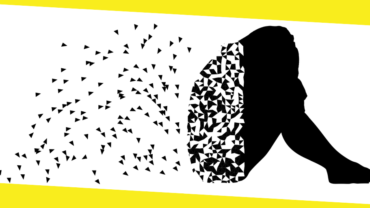How to Prepare for a Busy Hurricane Season During COVID-19
This post was last updated on February 24th, 2024

Hurricane season is fully underway as Hanna, the first hurricane of the Atlantic season, recently wrought havoc in Texas with flooding and damaging winds.
The National Oceanic and Atmospheric Administration’s (NOAA) Climate Prediction Center has projected that the 2020 hurricane season will be busier than normal. With the additional impact of COVID-19 this year, your disaster preparedness plan may be affected.
The Centers for Disease Control and Prevention (CDC) noted that planning for hurricane season “may be different this year because of the need to protect yourself and others from COVID-19.”
Here are some tips to plan ahead:
Contents
ToggleStrengthen Your Home
There are steps you can take to prepare your home before a hurricane hits and reduce damage. Declutter drains and gutters, bring in outside furniture, move valuables to higher floors in case of flooding, and unplug small appliances and propane tanks.
You may also want to consider hurricane shutters and placing sandbags across doorways and over drainage holes to reduce the amount of water entering your property.
Gather Supplies
You’ll want to have enough supplies for your household in case of an emergency.
It’s recommended that a basic emergency supply kit include the following items:
- One gallon of water per person per day for at least three days, for drinking and sanitation
- At least a three-day supply of non-perishable food and a manual can opener
- A battery-powered or hand crank radio and a NOAA Weather Radio with tone alert
- First aid kit
- Flashlight and extra batteries
- A whistle, in case you need to signal for help
- Plastic sheeting and duct tape, in case you need to seal a room (to shelter in place)
- Personal sanitation items
- Tools like a wrench or pliers to turn off utilities, if necessary
- Local maps
- Cell phones with chargers and backup batteries
You’ll also want to pack COVID-19 supplies, such as soap, disinfectant, hand sanitizer with at least 60% alcohol, and two cloth face coverings for each person over the age of two.
Organize Important Documents
During an emergency, it’s important to be able to easily access personal financial, insurance, medical, and other records so that you can begin the recovery process quickly.
Take time now to review and organize these important documents before an emergency strikes. It’s recommended to store these documents in a safety deposit box, an external drive or in the cloud to make it easy to access during a disaster.
Critical documents that you’ll want to safeguard include:
- Photo ID
- Birth certificate
- Social Security card
- Pet ID tags
- Housing payments
- Insurance policies
- Sources of income
- Tax statements
- Medical documents, like physician information, copies of health insurance information and immunization records
This is also a good time to confirm if you’re protected with the appropriate insurance policies. Most homeowners insurance policies do not cover damage from water, so a flood insurance policy may be necessary.
Create an Evacuation Plan
First, you’ll want to determine if you live in a hurricane evacuation zone. If you live near the Gulf or Atlantic Coasts, you can find out if you live in a hurricane evacuation area by contacting your local government/emergency management office or by checking the evacuation zones here.
If you are in or near an evacuation area, make a plan of action with multiple options in case evacuation is required. Because of COVID-19, you’ll want to make some extra precautions this year.
Plan for a safe place to stay, whether a local public shelter or with friends or family. You’ll want to check if your local shelter is open or if it’s closed due to the pandemic. The CDC has recommendations for staying safe and healthy in a public disaster shelter.
If you’re planning on staying with friends or family, discuss how you can all stay safe during the pandemic.
Recommended For You
Alzheimer: A Neurological Disorder
Most Inside
Most Inside offers high-quality recommendations and valuable updates to enhance all aspects of your life, providing premium guidance and enriching experiences.




